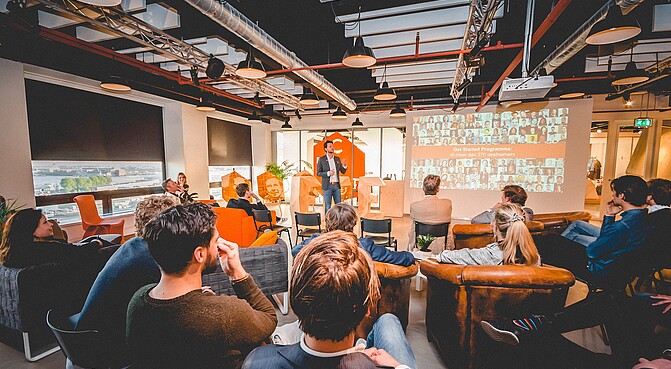The Business School Impact System (BSIS) is a comprehensive impact assessment tool to determine the extent of a business school’s impact upon its local and regional environment. The BSIS assessors’ report is based on 120 indicators that measure seven kinds of impact: societal, financial, educational, business development, intellectual, regional ecosystem, and image of the region. This factsheet highlights Rotterdam School of Management, Erasmus University’s (RSM) key impact in each area.*
*RSM defines the Mainport Rotterdam area as the local impact zone, and the Randstad region as the regional impact zone.
Financial Impact
Societal Impact
Educational Impact

Business Development Impact

Intellectual Impact
In 2019, RSM was engaged in:
Regional Ecosystem Impact
RSM’s full-time professors hold:
Rotterdam School of Management, Erasmus University (RSM) is one of Europe’s top-ranked business schools. For more than 50 years, RSM has been providing ground-breaking research and education furthering excellence in all aspects of management and is based in the international port city of Rotterdam – a vital nexus of business, logistics and trade. RSM’s primary focus is on developing business leaders with international careers who can become a force for positive change by carrying their innovative mindset into a sustainable future. Our first-class range of bachelor, master, MBA, PhD and executive programmes encourage them to become critical, creative, caring and collaborative thinkers and doers.
